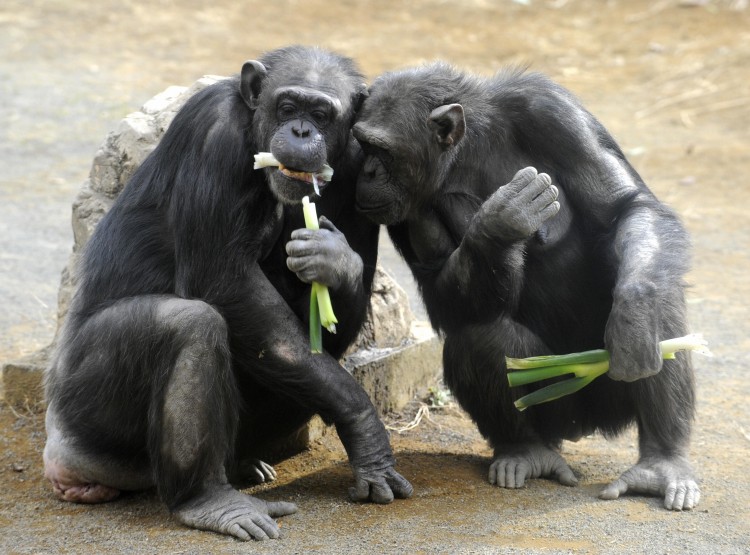When playing the Ultimatum Game, chimpanzees can figure out how to cooperate with their partners and share the rewards like humans do.
Scientists at the Yerkes National Primate Research Center, where the study was carried out, weren’t sure if the apes could display a sense of fairness and agree to share the rewards with their game partners.
“We used the Ultimatum Game because it is the gold standard to determine the human sense of fairness,” study lead author Darby Proctor said in a press release.
“In the game, one individual needs to propose a reward division to another individual, and then have that individual accept the proposition before both can obtain the rewards. Humans typically offer generous portions, such as 50 percent of the reward, to their partners, and that’s exactly what we recorded in our study with chimpanzees.”
The study compared 20 children with six chimpanzees. In the game, a modified version of the Ultimatum Game, there were two types of tokens that indicated how many rewards each player would get.
The chimpanzees were playing for food, and the children for stickers. First the chimpanzee (or child) had to choose a token, and then its partner had to agree on this and swap it with the experimenter for a reward.
The first kind of token would give the chimpanzee all the treats and leave nothing for its partner, and the second kind of token would split the rewards fairly between them.
Just like the children, the chimpanzees chose to share the rewards and get their partners to cooperate. However, when the game was played differently and the partners had no choice in the matter, the chimpanzees and the children took all the rewards for themselves.
“Until our study, the behavioral economics community assumed the Ultimatum Game could not be played with animals or that animals would choose only the most selfish option while playing,” said study co-author Frans de Waal in the release.
“We’ve concluded that chimpanzees not only get very close to the human sense of fairness, but the animals may actually have exactly the same preferences as our own species.”
The findings were published online in Proceedings of the National Academy of Sciences on Jan. 14.
The Epoch Times publishes in 35 countries and in 21 languages. Subscribe to our e-newsletter.






